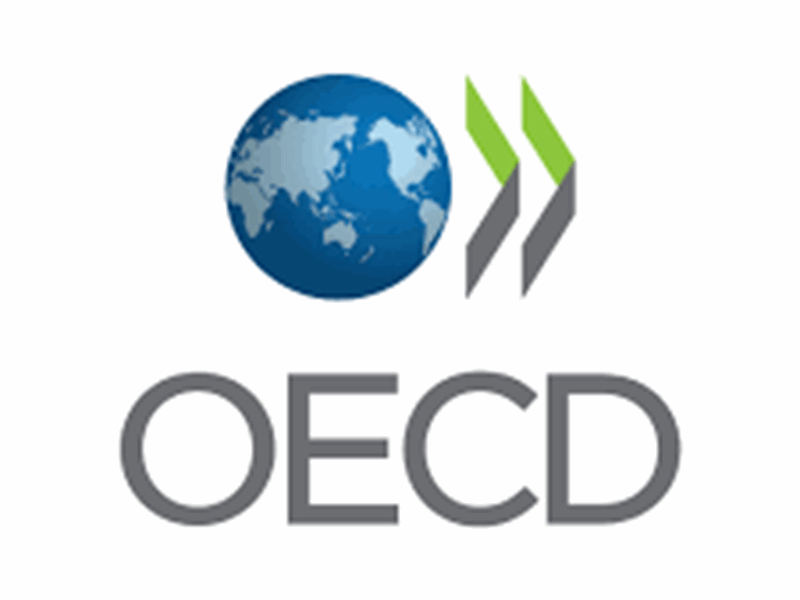Fresh Ideas Emerge for New EU Budget Levies

Developing Countries, Tax Treaty Shopping and the Global Minimum Tax
This article analyzes the international network of double tax treaties and its potential for enabling tax avoidance, particularly through treaty shopping. While developing countries are not universally more vulnerable to revenue losses, certain nations—such as Bangladesh, Egypt, Indonesia, Kenya, Uganda, and Zambia—face significant risks of withholding tax erosion. Using an algorithm from network theory, the study models how multinational enterprises exploit tax treaties to minimize their liabilities. It introduces the concept of "potentially aggressive tax treaties," which serve as key conduits for treaty shopping and revenue losses. The article also highlights how treaty partners can counteract the effects of tax incentives offered by developing countries by imposing top-up taxes, thereby undermining the intended benefits of these incentives.

Anticipating Trade Turbulence: Assessing the Economic Impacts of President Trump’s Proposed Tariff Scenarios
This article analyzes the economic impact of President Donald Trump’s proposed tariff policies in a potential second term, using a multi-region, multi-sector, open-economy applied general equilibrium model to assess six tariff scenarios involving China, Canada, Mexico, and the rest of the world. The study examines bilateral trade flows, sectoral output, real GDP, and economic welfare, finding that the proposed tariffs would disrupt global trade and generally produce negative economic effects for both the U.S. and its trading partners. In a trade war scenario, Canada and Mexico would face the greatest welfare losses, while China would also suffer but could benefit from U.S. tariffs on Mexico and Canada. The U.S. would experience mixed welfare effects, with smaller overall impacts depending on the specific tariff scenario. The findings underscore the potential risks of protectionist trade policies and their broader implications for global economic stability.

Navigating Tariff Risks: Stockpiling, Sourcing Diversification, or Responsive Pricing?
This article examines the resurgence of tariffs as a trade policy tool and their impact on global supply chains, focusing on how firms manage tariff risks through mitigation and contingency strategies. Mitigation strategies, such as stockpiling and sourcing diversification, proactively hedge against tariff risks, while contingency strategies, like responsive pricing, react once tariffs take effect. The study presents an analytical framework showing that tariffs consistently increase market prices, though price hikes are more pronounced under contingency strategies. As tariff risks grow or competition intensifies, firms tend to shift from reactive to proactive strategies, with partial mitigation emerging as a cost-effective approach when tariff rates are uncertain. Over time, sourcing diversification proves more sustainable than stockpiling, especially for prolonged tariff periods. The article provides key managerial and policy insights, advising firms to align strategies with tariff characteristics, favoring sourcing diversification for long-term resilience and responsive pricing for low-probability or low-rate tariffs. For policymakers, the findings underscore how mitigation strategies protect consumers from sharp price increases but also drive structural shifts in global supply chains.

BRIEFING PAPER: TOWARDS A PROTOCOL ON TAXING CROSS-BORDER SERVICES
This briefing paper examines the taxation challenges posed by the rise of cross-border services in an increasingly globalized and digital economy. Traditional tax rules, based on physical presence, fail to account for the borderless nature of modern service provision, leading to loopholes and tax avoidance. The paper discusses how these challenges have gained prominence in international tax reform efforts, including the G20/OECD BEPS initiatives and the push for a UN Tax Convention. It argues for a dedicated protocol to govern the taxation of cross-border services, identifying key gaps in existing tax frameworks and proposing core features for a prospective UN-led solution.

TAXING CORPORATE PAYOUTS
This article critiques the current U.S. system for taxing corporate distributions, highlighting its complexity, bias favoring buybacks over dividends, and opportunities for tax sheltering. Despite repeated reform efforts, the system remains flawed. The authors propose a "distributions tax impossibility theorem," demonstrating that no tax regime can equally treat buybacks and dividends while taxing capital gains on realization under current legal assumptions. They suggest two reforms to address these issues: repealing classification rules so that payout forms dictate tax treatment, and treating all dividends as partial sales, building on Ethan Yale’s 2009 proposal. These reforms aim to neutralize the tax bias between buybacks and dividends, simplify the system, and minimize sheltering opportunities.

The Interaction Between the UTPR and Tax Treaties: Selected Issues
This article explores the relationship between the Undertaxed Profits Rule (UTPR) and international tax treaties, focusing on how the UTPR affects their application and interpretation. It discusses the digital transformation’s impact on global taxation and the BEPS Project’s role in addressing these challenges. The article provides an overview of the UTPR, including its evolution, objectives, and implementation across jurisdictions, as well as the fundamentals of international tax treaties under the OECD Model Convention. The analysis highlights potential conflicts, discriminatory effects, and treaty override concerns arising from the UTPR, while evaluating the multilateral instrument's role and dispute resolution mechanisms. Practical implications for multinational enterprises, particularly U.S. MNEs, are examined, alongside policy recommendations and domestic legislative strategies for effective UTPR implementation.

Substantive Tax Sovereignty Under Globalization
This article examines tax sovereignty as the ability of a political community to design a fiscal system that supports its collective self-determination, emphasizing that sovereignty is rooted in legitimate authority rather than mere power. It explores the challenges globalization poses to tax sovereignty, particularly its impact on the state’s capacity to provide public goods, promote distributive justice, and uphold political participation. The article warns that globalization, if unchecked, could erode substantive tax sovereignty and questions how states can maintain viable and legitimate tax systems in a competitive global environment. It concludes by evaluating cooperative measures, arguing that such cooperation must prioritize leveling the international tax playing field and progressively allocating its benefits to sustain substantive tax sovereignty.

Sustainable tax governance: a shared responsibility
This article discusses the integral role of tax in advancing sustainable development goals (SDGs) and environmental, social, and governance (ESG) frameworks, emphasizing the shared responsibility of governments and businesses in achieving sustainability. It argues that corporate tax governance should align with an organization's sustainability commitments, values, and principles, with sustainable tax practices being a board-level priority. Companies dedicated to SDG and ESG objectives should expand upon corporate social responsibility (CSR) principles, recognizing an ethical obligation to pay a fair share of tax and maintain proactive transparency to enhance accountability. Key challenges include fostering a mindset shift to integrate tax into ESG frameworks and developing a public transparency benchmark that provides detailed tax data for analyzing corporate tax performance effectively.

International Tax Reform: Release of New Tools for the Implementation of Amount B Relating to the Simplification of Transfer Pricing Rules
The OECD released a pricing tool and fact sheets to facilitate the understanding and operation of the simplified and streamlined approach to transfer pricing. The fact sheets provide a high-level overview of the mechanics of Amount B, including the steps taxpayers and tax administrations should take to apply Amount B. The Pricing Automation Tool has been developed to automatically compute the Amount B return for an in-scope tested party, requiring only minimal data inputs, and is intended to further optimise the administrative and simplification benefits for both tax administrations and taxpayers.

Harmful Tax Practices – 2023 Peer Review Reports on the Exchange of Information on Tax Rulings
Under the BEPS Action 5 minimum standard, members of the OECD/G20 Inclusive Framework on Base Erosion and Profit Shifting have committed to counter harmful tax practices with a focus on improving transparency. This report reflects the outcome of the eighth annual peer review of the implementation of the Action 5 minimum standard.


































